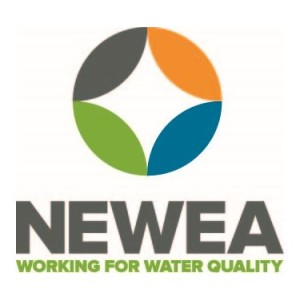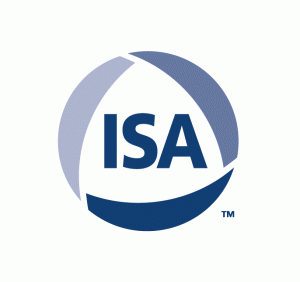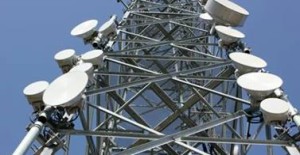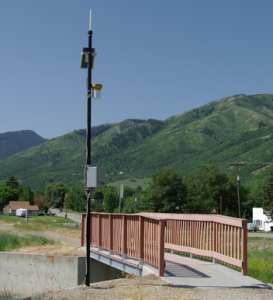 The ISA Water/Wastewater Division will be holding a special technical webinar on Monday, March 24 in conjunction with the IT & Automation Committee of the New England Water Environment Association.
The ISA Water/Wastewater Division will be holding a special technical webinar on Monday, March 24 in conjunction with the IT & Automation Committee of the New England Water Environment Association.
Webinar – Monday, March 24, 2014 @ 2pm Eastern
Free Technical webinar
for NEWEA members and ISA WWID division members.
Title: “Cellular Telemetry – Yet Another communication Option in Our Toolbox”
Speaker: Paul Birkel
Time: 2:00pm Eastern (UTC -4:00)
Duration: 45 minutes
 Paul is a senior vice-president with Wright Pierce, a full-service civil engineering firm based out of Portland, Maine, USA. Paul has an extensive background in SCADA applications and remote communications for municipal water facilities. He has been an active member of the NEWEA for over 15 years.
Paul is a senior vice-president with Wright Pierce, a full-service civil engineering firm based out of Portland, Maine, USA. Paul has an extensive background in SCADA applications and remote communications for municipal water facilities. He has been an active member of the NEWEA for over 15 years.
Connection information for the webinar, and instructions on how to pre-register will be made available shortly. ISA-WWID and NWEA members will receive personalized email invitations to the webinar – follow the instructions in the email. Didn’t get the email? Use the contacts at the end of the message to request an invitation.
Special thanks to the New England Water Environment Association and our WWID members in the Boston area for helping to make this collaborative webinar possible.
Warmest Regards,
Graham Nasby
Director
ISA Water and Wastewater Division (WWID)
Note: If you do not receive your personalized email invitation by Monday, March 10, 2014 you can contact one of the following people to request one:
- Juliana Oyeniyi (Webinar Coordinator, ISA water/wastewater division) – oyeniyijo@cdmsmith.com
- Graham Nasby (Director, ISA water/wastewater division) – graham.nasby@eramosa.com
- John Trofatter (Vice-Chair, NEWEA IT&A committee) – jtrofatter@idexcorp.com
 Webinar Description: This presentation will outline a case study of the Falmouth (Maine, USA) upgrade to their 28 remote wastewater pump station telemetry system. Originally the wastewater treatment facility utilized an older VHF radio-based telemetry system installed in 1984. Having served the community well for almost 30 years, the system was near the end of its useful life. Several issues drove the need for upgrading the system including: FCC changes requiring narrow band communications and existing radios not having the digital designators required by the FCC to demonstrate compliance; the original OEM is no longer in business creating issues with spare parts availability and service; and the failure of a critical part, the main communications circuit board (an Aquatrol part and no longer in manufacture or available), would severely limit access to data and impact emergency response. Options considered included VHF, UHF and spread spectrum radios and cellular communications.
Webinar Description: This presentation will outline a case study of the Falmouth (Maine, USA) upgrade to their 28 remote wastewater pump station telemetry system. Originally the wastewater treatment facility utilized an older VHF radio-based telemetry system installed in 1984. Having served the community well for almost 30 years, the system was near the end of its useful life. Several issues drove the need for upgrading the system including: FCC changes requiring narrow band communications and existing radios not having the digital designators required by the FCC to demonstrate compliance; the original OEM is no longer in business creating issues with spare parts availability and service; and the failure of a critical part, the main communications circuit board (an Aquatrol part and no longer in manufacture or available), would severely limit access to data and impact emergency response. Options considered included VHF, UHF and spread spectrum radios and cellular communications.  A radio path survey was conducted to establish predicted signal strength and reliability of a traditional radio system and define the location for necessary repeaters to obtain information from the most difficult to reach stations. In considering the feasibility and reliability of a cellular-based system, extensive bench and field testing was conducted to quantify signal strength and assess the amount of data to be transmitted and how to best configure polling to limit the cost of data transmitted while providing a reasonable polling frequency. We will present our assessment of the economics and life cycle cost between the two viable systems (Cellular and VHF) and explain the rationale used in the decision making process and how the system is working.
A radio path survey was conducted to establish predicted signal strength and reliability of a traditional radio system and define the location for necessary repeaters to obtain information from the most difficult to reach stations. In considering the feasibility and reliability of a cellular-based system, extensive bench and field testing was conducted to quantify signal strength and assess the amount of data to be transmitted and how to best configure polling to limit the cost of data transmitted while providing a reasonable polling frequency. We will present our assessment of the economics and life cycle cost between the two viable systems (Cellular and VHF) and explain the rationale used in the decision making process and how the system is working.
 About the Webinar Presenter: Paul Birkel has a B.S. in Civil Engineering from the University of Maine and a M.B.A. from Southern New Hampshire University. He is a senior vice president at Wright-Pierce, a 200 person, water, wastewater and infrastructure consultant in the Northeast. Mr. Birkel runs the wastewater practice group and has a significant interest in the application of instrumentation and controls for wastewater facilities.
About the Webinar Presenter: Paul Birkel has a B.S. in Civil Engineering from the University of Maine and a M.B.A. from Southern New Hampshire University. He is a senior vice president at Wright-Pierce, a 200 person, water, wastewater and infrastructure consultant in the Northeast. Mr. Birkel runs the wastewater practice group and has a significant interest in the application of instrumentation and controls for wastewater facilities.
